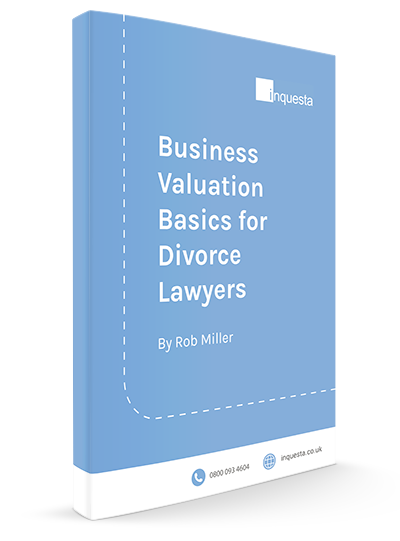What is Risk Management in Business?
Business risk management involves the identification, assessment, and control of various threats that could prove damaging to a company’s operations. Examples of these include the danger of fraud, financial difficulties, and strategic management errors. Successful strategies will consider all of the potential issues a firm could phase and devise a series of plans to rectify a problem should one occur.
No matter if you’re a relatively small company or large multinational, risk management is essential to maintaining the success of your business. Not everything runs smoothly in business, so it’s important to understand how to act should an issue arise. If you fail to have a plan in place, or do not act at all, you risk exacerbating the situation. In a worst case scenario, you could put the future of your firm in jeopardy.
Business risk comes in all shapes and sizes, from natural disasters and accidents to legal liabilities and problems with technology. They can typically be categorised into seven key areas: Physical, Strategic, Regulatory, Technology, Operational, Financial, and Reputational.
The benefits of business risk management are vast. Not only does it enable company directors to make informed decisions and plan your operations accordingly, but it also helps allocate time and resources where they are needed most. In addition, having an effective strategy in place can open the door to discovering new opportunities and reduce the company’s overall liability.
As important as it is, sometimes business owners struggle to identify the various risks that are threatening their companies. This could be because they are unaware of the current state of their firm, or are simply too close to the situation to have a pragmatic view of what’s going on. That’s why having an independent consultant take an impartial look at a company can be crucial for future proofing its operations. Seeking specialist opinion can provide a helpful insight into the runnings of a business and recommend potential solutions.
Why is Business Risk Management Important?
Approximately 20% of all companies fail in the first year, rising to 65% after five years. Business risk management lets a firm analyse and mitigate threats and give it the best chance of future success. Even if it’s impossible to remove risk altogether, a successful strategy can keep it to a minimum and reduce its potential impact.
You’ve heard the saying “failing to prepare is preparing to fail”, and this is especially true in business. If you have no answer to a crisis, the likelihood is that you’ll make spur of the moment and ill-informed decisions that could make things worse. The potential to compound the issue is significant.
Having a robust business risk management system in place alleviates this problem altogether.
Business Risk Management Techniques
There are several methods companies can use to mitigate business risk, including:
- Avoidance: Having checks in place to avoid the chances of risks happening. Examples include background checks on companies and individuals
- Transferral: Occurs when a business has risk that is unavoidable, so seeks to offload it to a third party, such as via insurance
- Loss Prevention: Putting preventative measures in place to mitigate the damage caused by an unavoidable risk
- Retention: The handling of risk internally within a company. Occurs when a business believes that the benefits of mitigating risk is less than the potential damage caused by the risk itself
The Business Risk Management Process
There are several important steps to the business risk management process, including recognising where vulnerabilities exist, assessing their potential impact, and formulating a response. Successful navigation of these areas is critical, so it’s important to seek specialist guidance if you’re ever unsure about what to do.
Here’s the risk management process in a bit more detail:
Download Your Free Guide to Business Valuation for Divorce Lawyers
Ensure that all of the prized assets in your divorce case, including a business, are valued properly and appropriately.
The process of valuing a company is likely to be one of the most complicated aspects of any divorce proceeding. Our FREE downloadable booklet is designed to support you. Download today and find out more

Types of Business Risk
There are several factors that could pose a risk to a company’s operations. These include cash flow, how susceptible it is to fraud, and the success of its current performance. If just one of these elements should go awry, it could lead to the firm getting into serious difficulty.
It’s a sad truth that 20% of new companies end up failing within its first year of operations, with this figure rising to 50% in year five. Ineffective cash flow management is one of the most common causes of businesses going under, so it’s essential that you have a clear understanding of how much money is coming into your firm and how much is going out.
The lifespan of a business never runs smoothly, and there will always be some unexpected bumps in the road. Having a robust cash flow management plan in place enables a company to understand how susceptible it is to being derailed by an unforeseen cost or a barrier to regular trading. If they find their current position to be too risky, they can make the required changes and hopefully future proof their operations.
Effective cash flow management can also have an impact on business practices. For example, if you are usually lenient on firms that owe you money, you may find out that a lot of your cash is actually tied up in other businesses. As a result, you could decide to implement more rigid payment terms to reduce the amount of money owed to you.
Trading while insolvent can have some serious repercussions, such as fines and disqualification. Despite this, many business owners are not fully aware of their financial position and are therefore at risk of falling foul of the law. This could be down to genuine ignorance or an unwillingness to accept that things are not going well.
Although they are extremely challenging to get through, financial difficulties needn’t spell the end for a company. Sometimes it’s possible to change course and use a variety of business recovery measures to get back on track. However, the longer a firm struggles without action, the less chance it has of survival — it is essential to act quickly and decisively. This is impossible if you have no idea how your company is performing financially.
Other stakeholders such as shareholders, suppliers, and potential investors will also be interested in the performance of your company. If you’re not able to supply them with the information they require, this could lead to your ongoing working relationship becoming rocky. With so much at stake, it’s imperative that business owners understand how their firm is performing so they can recover from any problems and stay in the black.
Fraud is a huge concern for businesses not just in the UK, but across the world — and with good reason. It is estimated that over £100 billion each year is lost to fraudulent activity in the UK, making it one of the most serious pitfalls for companies in all areas of industry. As firms become ever-more reliant on technology, fraudsters are also evolving and coming up with more advanced schemes that are difficult to detect.
Unfortunately, it’s extremely common for firms to become victims of fraud because of vulnerabilities within their operations, or as a result of poor business decisions. It is also the case that many companies will only choose to take action once fraudulent activity has taken place instead of taking preventative measures. Of course, this could be down to a lack of knowledge regarding the risks their company faced.
Taking a more proactive approach can mean that any potential vulnerabilities and loopholes are closed before they can be exploited. While it’s possible to carry out a review of your operations internally, it may be a good idea to seek the assistance of a specialist, who can offer an unbiased opinion and recommend the best solutions for your circumstances.
Today’s business world is incredibly fast-paced, with potential risks to your stability around every corner. Failing to address these risks could not only threaten the future of your company, but also cause significant reputational damage and leave you open to prosecution. The practice of business intelligence can be used to obtain comprehensive information about your firm and other third parties to reduce your vulnerability to risk and help everything run smoothly.
Business intelligence can assist with all areas of running a company, from deciding who to hire or work with as a supplier, to assessing whether it’s a good idea to purchase another company or enter into a partnership with a third party. It also helps with a plethora of regulations, such as the UK Bribery Act and Know Your Customer (KYC) requirements.
It’s common for a lot of companies to get into difficulty because of poor decision making, often because they simply do not have all of the facts to hand. Business intelligence alleviates this problem and allows a firm’s owners to make more balanced choices.
No matter if it’s to check the cash flow situation of a business, its solvency, or how susceptible it is to risk, it’s essential to have a clear understanding of how a company is performing. This information is not only important to the owners themselves, but also to other stakeholders such as banks or shareholders.
External stakeholders will want to see a clear report about a company’s performance, particularly if it is distressed or not performing as well as expected. In this scenario, clarity is everything, as it’s important to have a thorough understanding of how things are going so you can get a good idea of what actions are required.
An independent business report (IBR) can provide this clarity, and give company directors or interested stakeholders an overview of the current situation and potential ways to improve.
Our Risk Management Services
As specialist consultants, we’ve put together a host of essential business risk management services to help company directors through potentially tricky situations.

Cash Flow Management
Does your company constantly seem to be running out of money? Are you concerned that you will struggle to cover all of your obligations? Cash flow problems could be the cause of your distress. We provide a thorough review of your situation and offer our specialist opinion on how things can be improved.
Opinion on Solvency
If you’re ever unsure about the financial position of your company, obtaining a third-party assessment of your solvency is crucial. This is especially the case if your company is declared insolvent further down the line. We provide a comprehensive report and professional assessment of your situation.


Fraud Risk Review
Understand whether your firm is susceptible to fraud and put practices in place to mitigate your risk thanks to our independent risk review service. You’ll receive a rating that outlines just how much you could be impacted, along with essential recommendations on how things could be improved.
How Inquesta Helps with Business Risk Management
The Inquesta team has amassed decades of experience in dealing with all aspects of corporate finance and accountancy — from business restructuring and commercial finance, to forensic accounting and tax debt solutions. It is this wealth of knowledge and expertise that means we are extremely well-placed to advise in all areas of risk assessment. We combine this experience with a client-centric approach that puts the customer at the forefront of everything we do and ensure that we only recommend the best solutions to suit their individual circumstances.
When dealing with business risk, a level-headed approach is essential. This is why we always adopt a pragmatic mindset that includes a thorough investigation and offers practical solutions for a variety of problems. It is this way of working that has helped us develop a strong reputation for the quality of our service.
No two businesses are ever the same, which is why we will work with you to get a clear understanding of your business, before recommending what we believe is the most relevant solution for your individual circumstances. We can also effortlessly amend our own processes to accommodate your specific needs.
If your company is struggling financially, or you are worried about potential risks, we understand that this will be an incredibly difficult time. Inquesta aims to lighten the load and give you advice and support you can rely on.
Get In Touch
Our Specialist Team

Steven Wiseglass
Director of Insolvency
A co-founder of Inquesta, Steven is a licensed Insolvency Practitioner with over a decade of experience in the field. He is a member of the Insolvency Practitioners Association, Association of Business Recovery Professionals (R3), and his insolvency licence is issued by the Insolvency Practitioners Association. In addition, he sits on the R3 committees of the North West Regional Committee.
Steven specialises in advising directors of small to medium-sized businesses, and has a wealth of expertise in providing the most appropriate advice whatever the firm’s circumstances may be. He has also been instrumental in helping company directors save their business and rebuild them into successful enterprises.
Rob Miller
Director of Forensic Accounting
A co-founder of Inquesta, Rob Miller is a chartered accountant, a member of the Institute of Chartered Accountants in England and Wales (ICAEW), and a Practising Member of The Academy of Experts.
With decades of experience in providing specialist forensic accounting services, Rob has been instructed to assist with numerous cases — such as financial investigations, criminal defence and confiscation proceedings, commercial and contractual disputes, valuation matters, and much more besides. He has acted on behalf of claimants, defendants, and as a single joint expert.

Latest Articles
What are the Different Types of Costs in Business?
If you’re asking yourself, ‘what are the different types of costs in business?”, you’re already taking an important first step towards better financial management. Every business is faced with a range of expenses — from [...]
4 Advantages of a Cash Flow Statement
In business, it always helps to keep up to date on the ins and outs of your company. Whether this is staying aware of all inventory that is shipped out, being aware of any notable [...]
How to Identify Cash Flow Problems
You can have an excellent USP, a great product, a dedicated customer-base, and a busy business, but if you aren’t able to maintain a good cash flow, you are straddling a fine line between [...]




